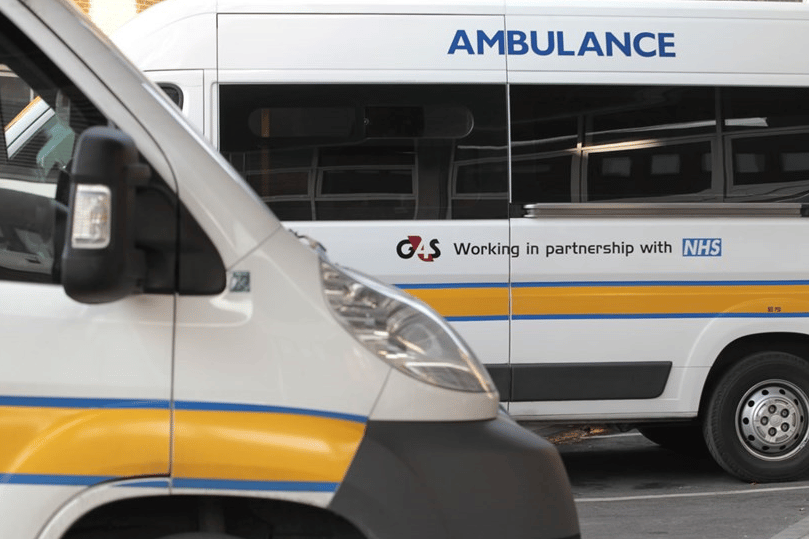HEALTH chiefs have such a ‘lack of confidence’ in the ability of private contractor G4S to ferry people to and from hospitals they have issued an official warning over its performance.
It is just one area of concern raised about the Patient Transport Service provider revealed in a report presented to the NHS West Kent Clinical Commissioning Group’s governing body.
In a review of the operator, which secured the £90million contract to provide patient transport in December 2015, serious concerns are raised about the opaque way in which G4S operates.
The report cites one incident of a patient dying ‘very shortly’ after being returned home by G4S. Out of five categories, the provider only gets a ‘green light’ in one, ‘amber’ in two and ‘red’ in the remaining two.
For the category termed responsive – classed as ‘services [that are] organised so that they meet people’s needs’ – the Clinical Commissioning Group [CCG] gave a red warning due to the inability of G4S to handle complaints effectively.
The situation has become so bad that the CCG has issued a ‘contract performance notice’ to G4S, meaning the provider was required to attend a Contract Management Meeting within ten days of the notice to discuss the subject.
In addition, the CCG has decided to manage ‘all G4S complaints for Kent & Medway’, citing: “The decision to take oversight of these complaints in to the CCG was as a result of a lack of confidence in G4S’s internal complaints procedure.”
G4S also gets a red light when it comes to the category ‘well led’, with concerns expressed about the organisation’s governance and leadership. The report states: “There is a continued lack of reporting of schedule 4 [NHS quality requirements], safeguarding and infection prevention control metrics as required by the contract for quality assurance. This is despite repeated requests for reporting at Performance and Quality meetings; meeting with G4S Compliance, Governance and Audit Manager to discuss the requirements; and the circulation of these requirements to the G4S Director of Operations.”
The report adds there is a ‘persistent lack’ of adequate or timely response to concerns and complaints, and G4S ‘do not submit any information on staff feedback or experience’.
In the category ‘safe’, classed as protecting people from ‘abuse and avoidable harm’, the operator is given an amber light.
The report notes three serious incidents since the G4S contract began in 2015: A patient falling from a transport and receiving a fracture; a patient dying ‘very shortly’ after being returned home by G4S; and a road traffic collision involving one of its transports.
All of these serious incidents are now breaching the 60-day time frame to be dealt with effectively, the report states, adding: “It is not possible to give assurance regarding the compliance with safeguarding or infection control training… as these metrics continue to be unreported by G4S.”
Amber is awarded in the category ‘effective’, classed as achieving good outcomes in people’s care treatment and support, as: “It is not possible to give assurance regarding the compliance with basic life support training or other required training or workforce data as these metrics continue to be unreported by G4S.” No schedule of audits has been provided by G4S either, it adds.
Only ‘caring’ gets the green light, with ‘no concerns’ being raised about the ‘compassion, kindness, dignity and respect’ patients receive during their journey.
Ian Ayres, Accountable Officer for the CCG said: “We have met with G4S and are working jointly to resolve the issues.”
Managing director for G4S transport services, Russell Hobbs, said: “After experiencing high demand for non-emergency patient transport services in recent months, our teams have met with West Kent CCG to discuss how changes can be made to accommodate the growing need for this vital service.
“We have implemented a new complaints process with additional resource which is being closely monitored by our team leaders, including West Kent CCG, and our new central data team will shortly be producing a revised quality report, which will include all the key metrics highlighted by commissioners.”
What is patient transport?
Used in non-emergency cases, patient transport is for people whose health means they cannot get to or from their NHS appointment in any other way.
To qualify for Patient Transport in Kent people must be registered to a GP in the county, going for physically demanding treatment, such as dialysis, and cannot use other forms of transport because of their medical or physical condition.








